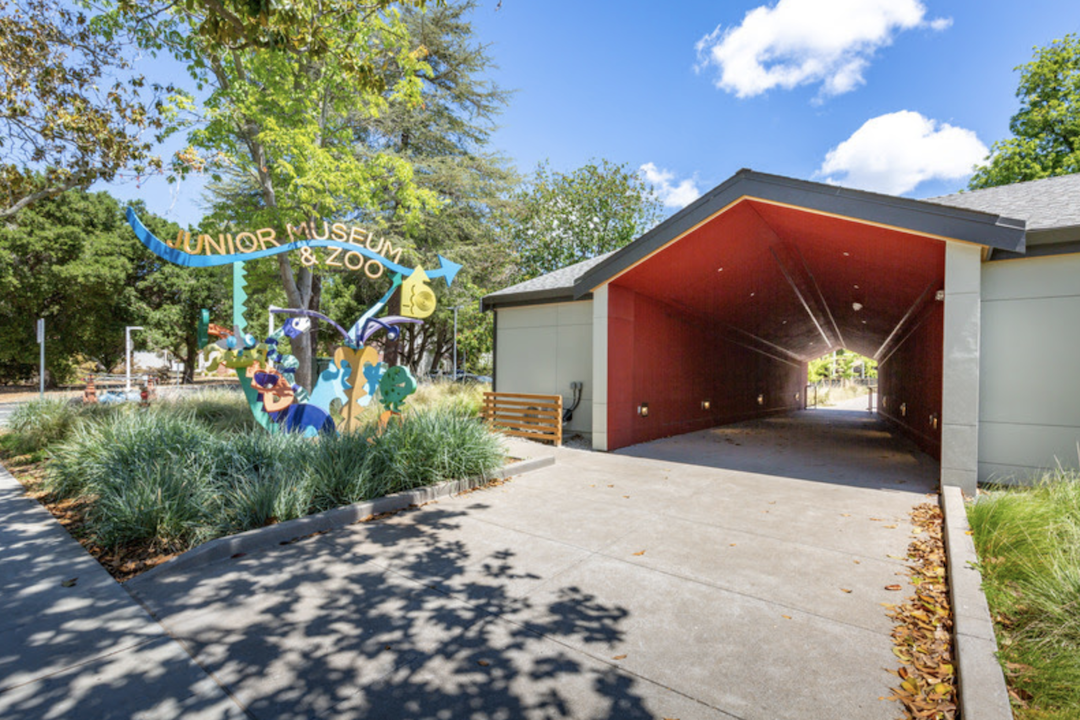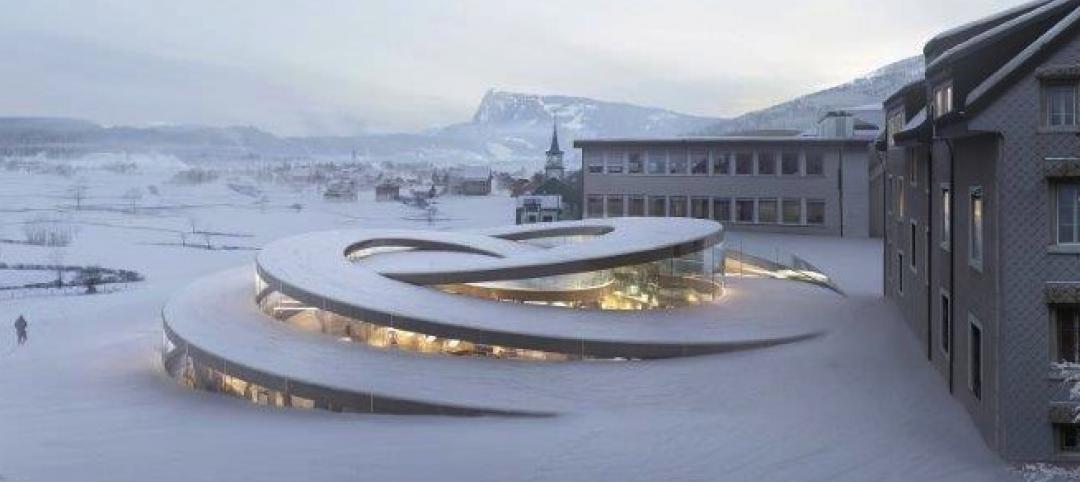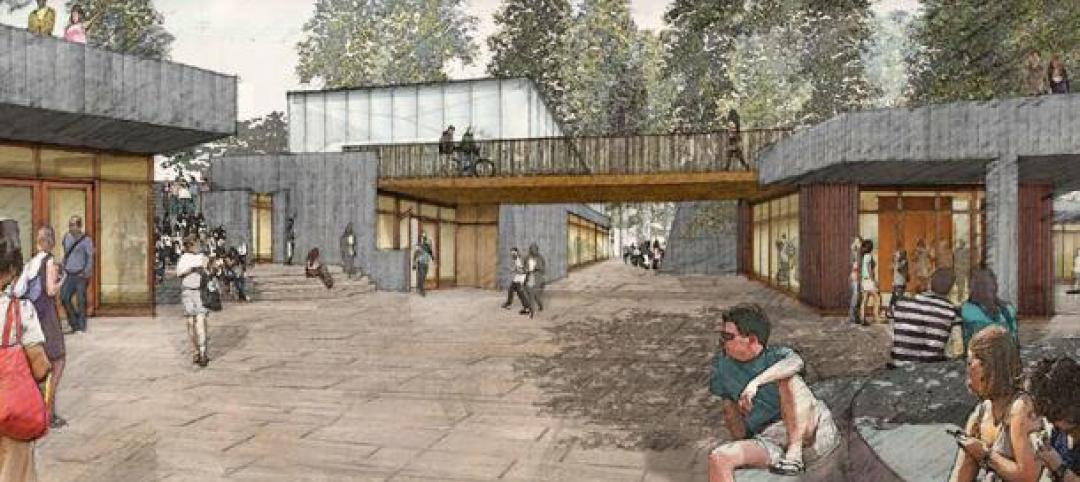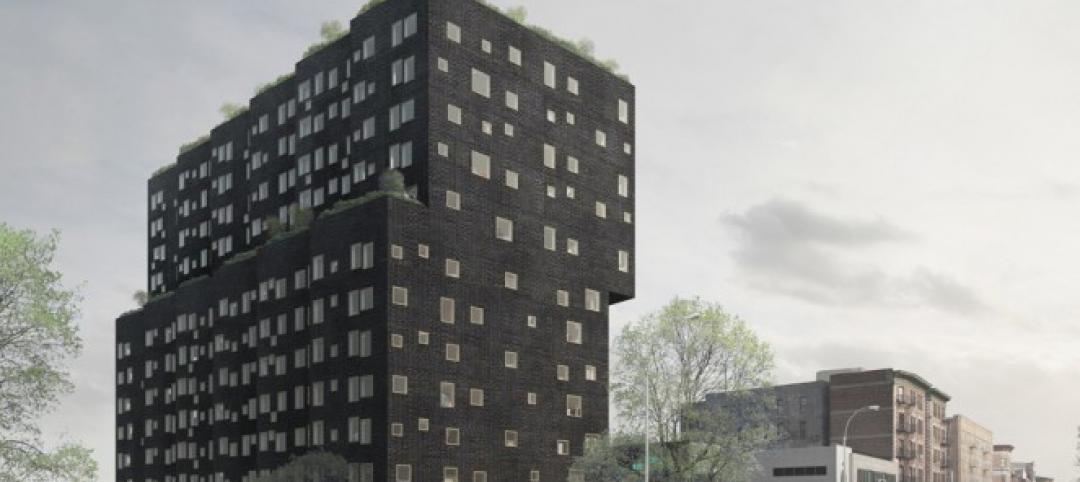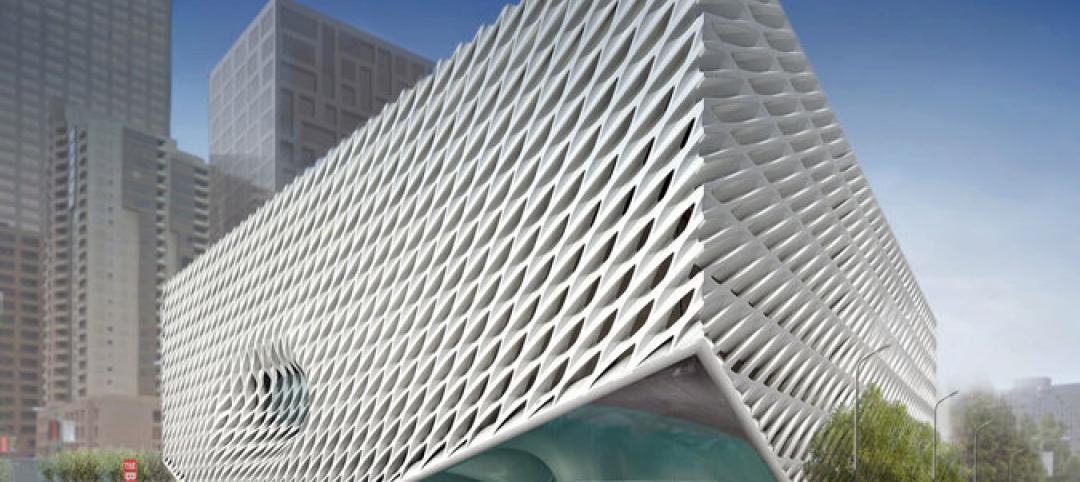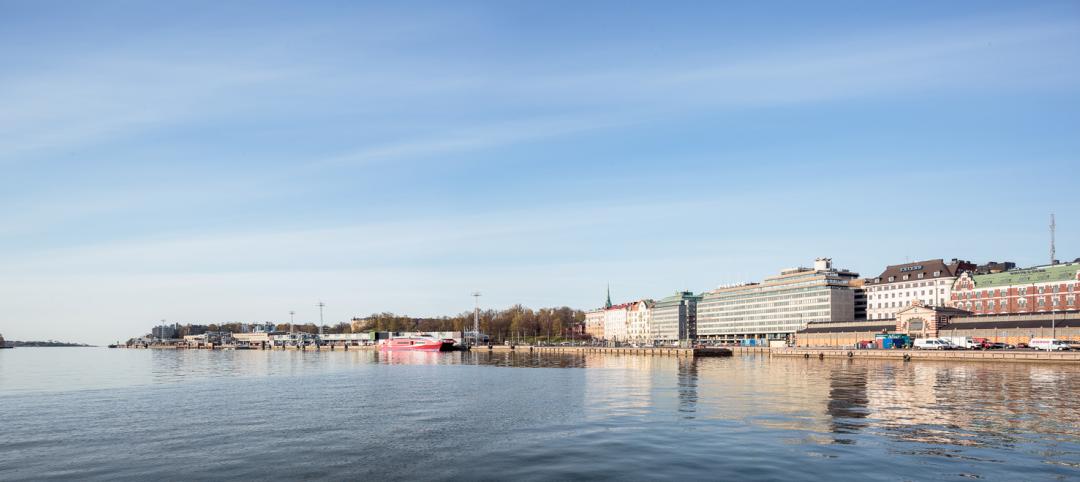The Palo Alto Junior Museum and Zoo (JMZ) has completed, CAW Architects recently announced. Located within the Palo Alto Arts and Recreation District, the project replaces the original JMZ facility. The project area spans three acres and includes a 15,200-sf building and the 18,800-sf zoo (including back-of-house spaces).
CAW Architects worked with Studio Hansen Roberts to design a new children’s museum and zoo that rethinks how to capture a child’s wonder and curiosity for the natural world and create interactive learning experiences throughout. Organized around an exhibit hall, education center, and outdoor zoo, the new design creates a strong visible presence through a large entrance porch and a variety of free outdoor exhibit spaces. The exhibit spaces extend into the adjacent surroundings and include the stump maze, the rainbow tunnel, and porch swings.
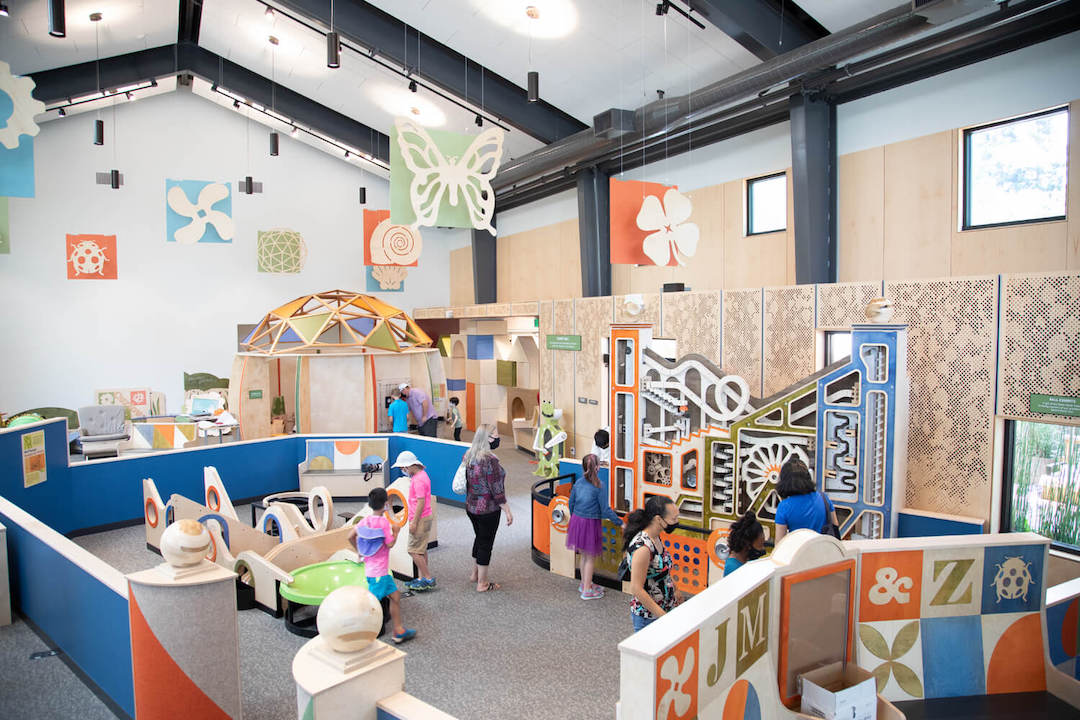
The building forms fit a residential and agrarian vernacular with simple clean forms and shed roofs, which echo the surrounding neighborhood. The building shapes fit in and around existing mature oaks and feature trees, where the buildings create theme-based outdoor courtyard spaces, such as the Jurassic courtyard, for specific educational opportunities.
The exhibit hall contains a variety of interactive and kinesthetic exhibits in which children can interact. Several large windows and skylights directly link the zoo with the exhibit hall, with some exhibits extending from the zoo directly into the museum.
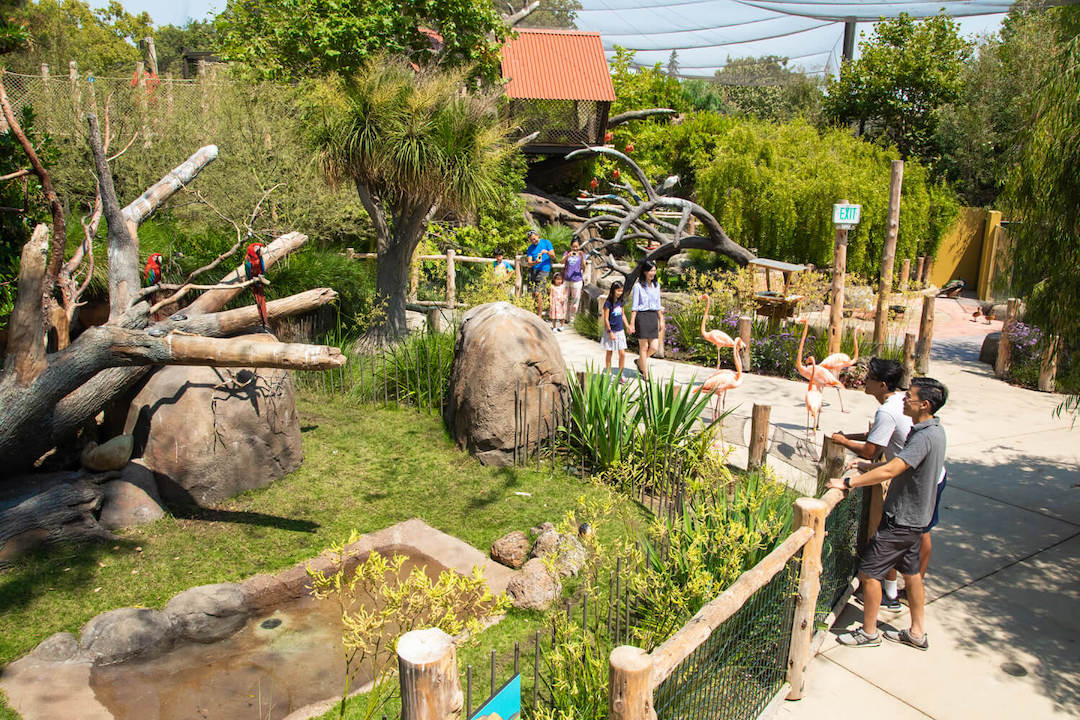
The entire zoo is designed as a large aviary, allowing a wide range of birds to directly interact with the children. The exhibits within the zoo are layered vertically to give kids an opportunity to view the natural environment from different vantage points. The design allows children to experience the natural environment of spaces below such as tree roots and water ponds, while also creating spaces above, for children to explore up in the central tree to then look down on the various zoo experiences. A tree house runs through the center of the zoo and connects all the spaces with rope bridges, ladders, net tubes, and platforms to create a play-based experience for children.
CAW Architects' work on the project included the site masterplan, including the museum, zoo, and education center to integrate it into the overall city complex; architectural design and interior design of the museum, education wing, and administrative support spaces; and site design including exhibit spaces around the museum exterior, zoo exhibit spaces, and zoo support spaces.
In addition to CAW Architects and Studio Hansen Roberts, the project team also included:
- Landscape Design: Vallier Design
- General Contractor: Vance Brown Builders
- Structural Engineer: Hohbach Lewin
- Specialized Structural Engineer: Coffman Engineers INC.
- Giotechnical Engineer: Silicon Valley Soil Engineering
- Civil Engineer: C2G
- Mechanical/Plumbing: ACCO Engineered Systems
- Electrical Engineer: H.A. Bowen Electric
- Project Arborist: HortScience, Inc.
Related Stories
| Jun 18, 2014
Arup uses 3D printing to fabricate one-of-a-kind structural steel components
The firm's research shows that 3D printing has the potential to reduce costs, cut waste, and slash the carbon footprint of the construction sector.
| Jun 16, 2014
6 U.S. cities at the forefront of innovation districts
A new Brookings Institution study records the emergence of “competitive places that are also cool spaces.”
| Jun 13, 2014
First look: BIG's spiraling museum for watchmaker Audemars Piguet
The glass-and-steel pavilion's spiral structure acts as a storytelling device for the company's history.
| Jun 12, 2014
Tod Williams Billie Tsien Architects' design selected for new UCSC facility
The planned site is a natural landscape among redwood trees with views over Monterey Bay, a site that the architects have called “one of the most beautiful they have ever worked on.”
| Jun 12, 2014
Austrian university develops 'inflatable' concrete dome method
Constructing a concrete dome is a costly process, but this may change soon. A team from the Vienna University of Technology has developed a method that allows concrete domes to form with the use of air and steel cables instead of expensive, timber supporting structures.
| Jun 11, 2014
David Adjaye’s housing project in Sugar Hill nears completion
A new development in New York's historic Sugar Hill district nears completion, designed to be an icon for the neighborhood's rich history.
| Jun 9, 2014
Green Building Initiative launches Green Globes for Sustainable Interiors program
The new program focuses exclusively on the sustainable design and construction of interior spaces in nonresidential buildings and can be pursued by both building owners and individual lessees of commercial spaces.
| Jun 9, 2014
Eli Broad museum files $19.8 million lawsuit over delays
The museum, meant to hold Eli and Edythe Borad's collection of contemporary art, is suing the German company Seele for what the museum describes as delays in the creation of building blocks for its façade.
| Jun 4, 2014
Want to design a Guggenheim? Foundation launches open competition for proposed Helsinki museum
This is the first time the Guggenheim Foundation has sought a design through an open competition. Anonymous submissions for stage one of the competition are due September 10, 2014.
| May 29, 2014
7 cost-effective ways to make U.S. infrastructure more resilient
Moving critical elements to higher ground and designing for longer lifespans are just some of the ways cities and governments can make infrastructure more resilient to natural disasters and climate change, writes Richard Cavallaro, President of Skanska USA Civil.


